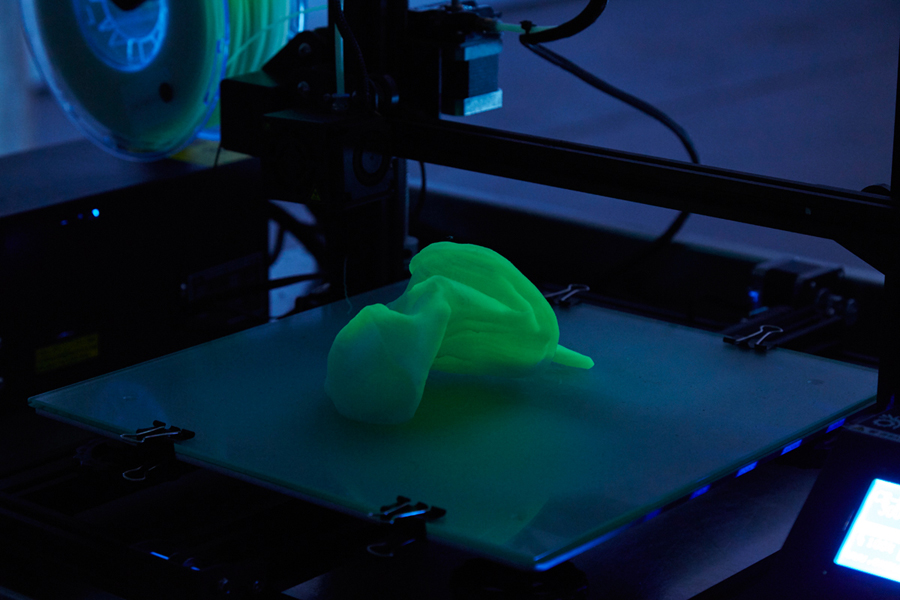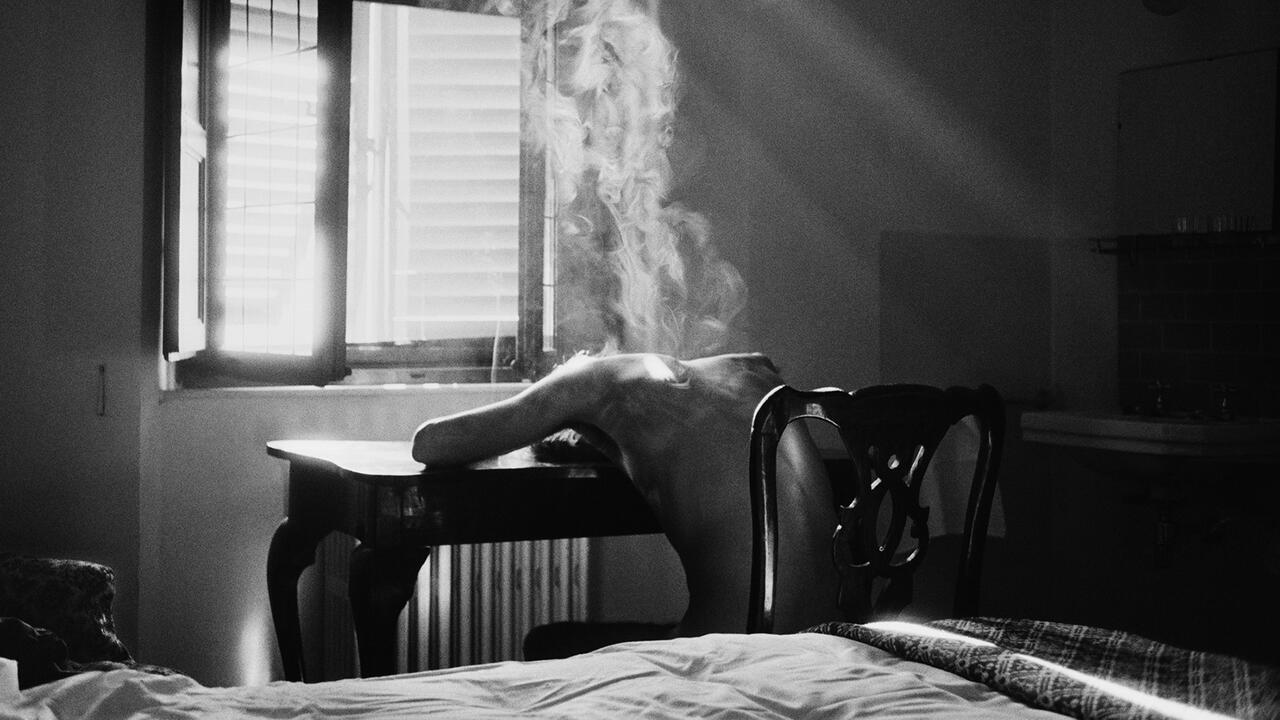From Basic Income to a Four Day Week – How New Economic Ideas Could Change the Art World
For too long ‘doing what you love’ has been a neat excuse to devalue artistic labour
For too long ‘doing what you love’ has been a neat excuse to devalue artistic labour

In the decade since the 2008 economic crash, the landscapes of work and personal finances have changed significantly, not least within the arts and culture sector. Across the UK, the gig economy has blossomed, average working hours have increased, as has job insecurity, and wages have continued to stagnate. In the culture sector, public galleries and libraries have suffered swingeing funding cuts; many mid-sized commercial galleries have closed while others have redirected their business to art fairs; and the market has become ever more concentrated at the high end. Teaching, one of the traditional means for artists to earn a supplementary income, has become increasingly precarious, with zero-hour contracts now the norm for visiting lecturers. At the same time, arts courses have proliferated and the number of graduates expecting to sublimate their creativity into a viable career has increased, making the field even more competitive.
Although unemployment figures in the UK are now at the lowest since the early 1970s, so is the quality of much employment, and the ill effect this has on physical and mental wellbeing has been widely noted. With automation increasingly putting some jobs into question – studies say up to a third of all jobs in the UK and half in the US could go – social scientists and politicians have been exploring a range of experimental solutions, from the payment of a universal basic income to the provision of universal basic services, and the implementation of a four-day working week. At last month’s Labour Party conference, shadow chancellor John McDonnell pledged to introduce a shorter working week of 32 hours with no loss of earnings if his party formed the next government. What impact, if any, might the rise of automation and the introduction of new financial and economic models have in the arts and culture sector?

Universal Basic Income
Promoted by Silicon Valley entrepreneurs including tech-billionaires Elon Musk and Mark Zuckerberg and by Democratic presidential candidate Andrew Yang as a potential panacea for the job losses anticipated in the coming of mass-automation, UBI has over the past few decades been tested in parts of the US, Canada, Kenya, Namibia and considered by political parties across the spectrum. Trials demonstrate that UBI does not have a negative impact on productivity and that it can have a positive impact on societal wellbeing. In Finland, a 2-year trial in which 2000 unemployed people were randomly selected to receive EUR€560 per month with no strings attached ended in early February 2019. Recipients reported a sense of greater economic security and better personal wellbeing, as well as increased levels of trust and confidence in future work prospects, although the report also stated that it is not yet possible to draw any firm conclusions.
To coincide with the end of the Finnish trial, Block 336 gallery in London hosted Finnish artist Anu Suhonen on a five-week residency themed around the future of labour, which culminated in the exhibition ‘Process Accelerator 2.0’ (9 February – 9 March 2019). Suhonen imagined a system of production and consumption designed to achieve ‘explosive growth’, staged in the gallery as a fully automated factory producing 3D printed sculptures of consumer waste. The exhibition offered a window onto a possible future world, a sterile and anti-social environment in which a large proportion of the contemporary labour market is obsolete; a place in which UBI mitigates the disappearances of wages. But many artists have never been paid for their art work, and for those practising before the introduction of stricter rules governing benefits, at a time when the cost of living was also lower, unemployment benefits in effect operated as a form of basic income, enabling them to devote time to their art rather than to paid work. UBI could arguably function in the same way for artists, allowing them to cover basic needs and to have enough time to work on their art, and also to contribute to a raft of collective goals such as interpersonal care, child rearing, community maintenance, democratic engagement and sport and public health.

Universal Basic Services
During a discussion on 13 February 2019 at Block 336 organized by Artquest, an artists’ professional development organisation whose 2019 programme has been dedicated to questions around the future of work, Alice Martin, Head of Work and Pay at the New Economics Foundation introduced a provocation to the debate around UBI, proposing a system of Universal Basic Services, which is currently being explored by UCL’s Institute for Global Prosperity. Under UBS, people’s needs for shelter, food, healthcare and education would be provided universally and free of charge and would cost just 2.3% percent of the UK’s GDP. In contrast to UBI, which Martin said was ‘individualistic in that you decide how to spend it’, UBS would perform a societal redistribution of wealth such that ‘you get what you need from it’. Furthermore, because UBS is articulated via embedded institutions made up of people providing services, rather than as cash tokens, it would be harder to repeal than UBI, which could be revoked from one day to the next – although the Left version of UBI is always proposed as part of a package, making it more secure. No doubt UBS could make an appreciable difference in quality of life to precarious workers living on low incomes with high levels of insecurity with regard to basic needs (of whom many happen to be artists).

The Four-Day Working Week
The issue of wellbeing is central to contemporary debates around income and work. According to some studies, the UK works the longest hours in Europe, yet for this, there is no gain in terms of productivity or happiness, a situation some have suggested could be improved by shortening the working week. In 2018, the New Zealand financial services company Perpetual Guardian conducted an eight-week trial of a four-day working week, keeping the same rates of pay, for its 240 staff members. They found that stress levels went down, workers were more engaged in their work and there was no decline in output. In addition to the UK’s Labour Party, which has now adopted the four-day working week as policy, other organizations have explored it, including the Wellcome Trust, which has an 800-strong workforce. Ideas such as the four-day working week need more testing in real-world situations, but unfortunately the Wellcome Trust abandoned the idea in April 2019, saying it would be ‘too operationally complex to implement’. Artists and freelance creative practitioners frequently work several jobs – sometimes adding up to more working days than there are in a week – to supplement meagre earnings from their art, performance or writing. On top of this, many artists also work as their own publicists, accountants, and administrators – jobs that have clearly defined industry rates but for which artists are usually not paid.
Although the four-day working week might appear to benefit regular salaried workers more than precarious arts workers, in the long run it could have a major impact within the culture sector. The purpose of the four-day working week is to strengthen labour’s negotiating power and expand its base, in view of automation and as a response to precarity. If a considerable portion of the working population reduces to a four-day week, the theory goes, supply will shrink and demand rise. The idea is that this will allow freelancers, in collaboration with their unions, to demand higher rates and give them the option to reduce workloads in line with the general habits of society around them.

These debates raise fundamental questions about the status of artists as workers, and about the value of artistic labour. There is a cultural acceptance that the work of artists is different in essence than the work of other professionals, but it is harder to pin down what, exactly, constitutes that difference. Being an artist is widely perceived as a matter of choice and a question of privilege, rather than one of sacrifice that merits financial reward. As Russell Martin, an artist and the director of Artquest said: ‘there seems to be an idea that if you enjoy your work [as an artist] you shouldn’t get paid for it.’ This perception exists even within the industry: an established curator who has worked in the field for several decades once told me, ‘I don’t know why artists insist on demanding to be paid. They don’t have to be artists.’
Yet in addition to the many benefits made by the arts that do not register in financial terms, their contribution to GDP stands as evidence that the sector is lucrative; in 2017 arts and culture contributed GB£29.5bn to the UK economy. Beyond monetary value, the arts can encourage a sense of community and belonging, aesthetic enjoyment, pleasure and wellbeing; they can educate and provide a repository for collective memory and new ideas – and are for the most part low-carbon activities. Any off-the-peg structural solutions will need to be adapted for a field as heterogeneous and unregulated as the art world. Until UBI and UBS are fully rolled out – if that ever happens – perhaps it is worth starting a conversation about how the wealth generated by the sector might be better redistributed: could we imagine this happening, for example, in the form of a Universal Artist’s Salary?
Main image: Anu Suhonen, 'Process Accelerator 2.0', 2019, installation view, Block 336, London. Courtesy: the artist and Block 366, London





















